King William III at Battle of the Boyne, 1690 Jan Wyck (1640 – 1702)
The long-running “troubles” in Northern Ireland gave rise to a lot of things: shootings, bombings, death, hatred (the hatred was built in, somehow) and, of course, folk songs. The Sash My Father Wore is one such song, in this case celebrating Unionism and the Protestant belief that Britain should remain in charge. The words celebrate the victory of King William III in a series of brief but bloody 17th century wars. The problem with wars in this case is that it’s not just politics that people are fighting over. It’s religion. Things are never clear-cut when religion is involved. Let’s just take a look at the problem, which arose (as did many others) when Britain left the European Union. With Ireland and the United Kingdom inside the EU there could be no borders or border checks to worry about, so goods flowed freely. Even the ardent Brexiteers seemed surprised when that stopped. It was a downside to their dream that they seem to have not anticipated. My wife and I were on all the protest marches, calling for a rethink about leaving the EU.
On one of the marches, we sat in a café just before everyone set off and at the next table were three young and well-spoken businessmen, one of whom was telling his colleagues about a friend who’d voted to leave and was then surprised to discover it would affect his business badly, especially concerning the goods he shipped to mainland Europe, and make further exporting of his goods virtually impossible. Apparently, the friend about whom this sorry tale revolves had said to him afterwards: “I would never have voted to leave if I’d realised it would affect my business.” He must have been exceedingly dim, but, of course, the keen Brexiteers kept very quiet about the possible negative aspects of voting to quit Europe. Like many others, the chap who had voted to leave and then regretted it never got a chance to change his mind, nor had he had the real issues explained to him. The marches were calling for a chance to vote again, but the keen Brexit-lovers were never going to permit that. The argumentative nature of hard-line Unionists is something few outside the Province and the field of British politics understand. Unionists believe in union with the UK and with no affection for those from the Republic of Ireland. Their political party is the Democratic Unionist Party, or DUP. On the other side of the argument, of course, are those who sympathise with the IRA – the Irish Republican Army, as its followers call it – and they are equally intransigent, and just as likely to kill people. Perhaps even more so. Hatred is very addictive. Years ago, I had to travel to Belfast in Northern Ireland to conduct a radio interview with a woman; I forget the topic. Her back garden was little more than a small patch of untidy grass, but over it all was a wire mesh net. It was there to stop Molotov cocktails – petrol bombs – from landing. In this much divided city they were not uncommon.
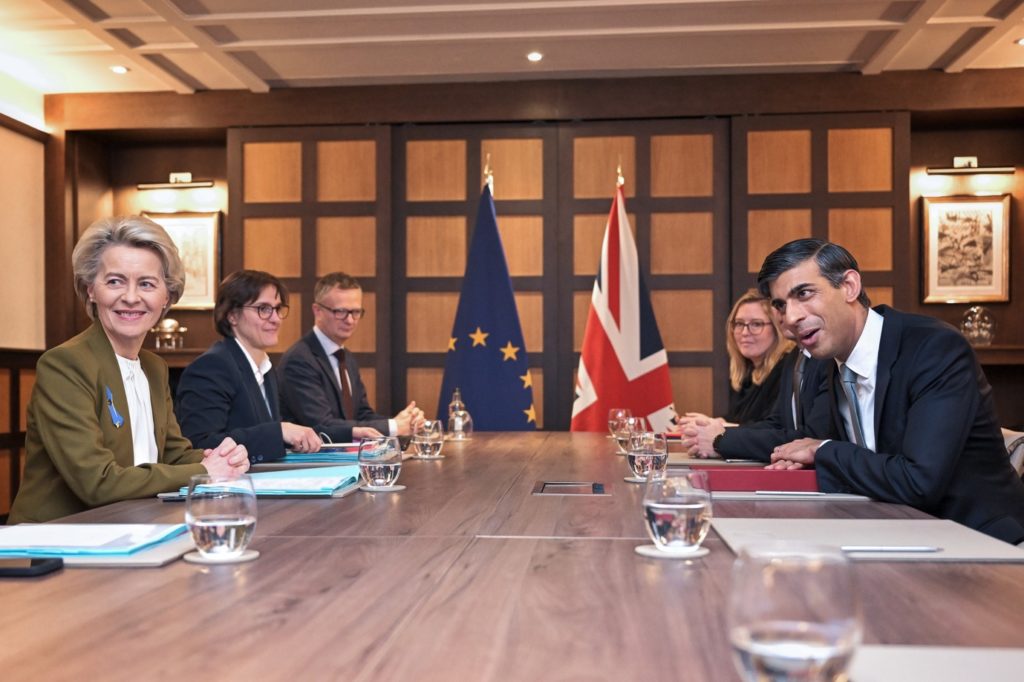
Let’s take a look at the issue that UK Prime Minister Rishi Sunak is trying to resolve: the problem of cross-border trade, exports, imports and the sudden demand for lots more paperwork for every shipment. His chosen solution is something called the “Windsor Framework”, which seeks to avoid the creation of a hard border by rewriting the deal that saw Britain withdraw from the EU. The name has nothing to do with the Windsors – Britain’s Royal Family – it’s just a well-connected Berkshire market town and it’s the place where Sunak reached a deal with Ursula von der Leyen, President of the European Commission, about future trading relations between Britain and the EU. Under the deal, most of the goods being transported from Britain to Northern Ireland will no longer need customs checks as long as there is paperwork to say they won’t be going on to an EU country. Some of the food products will have to bear a label saying “not for the EU”, in case anyone fails to understand its destination. Sunak has promised that any goods sold in British supermarkets will also be available in Northern Ireland. In much the same way, medicines that UK regulators have approved will not be held back from sale in Northern Ireland. Sunak has also proposed what he calls the “Stormont Brake”, which would authorise the Province’s elected rulers, the Stormont Assembly (currently being boycotted by Unionists) to veto any laws proposed by the EU and applying to the province. Even so, EU legislation will still apply to certain industries and their products, especially with regard to food and to animal products, with the European Court of Justice having the final say on how it works, something that some keen Brexiteers don’t like.

Republicans, though, are by and large supportive of Sunak’s initiative. I asked Mary Lou McDonald, a former MEP and now a member of the Irish Parliament for the Sinn Féin party she represented in the European Parliament and which she now chairs. Her opinion of Sunak’s success is positive. “The negotiations between London and Brussels are now over and a deal is done,” she told me. “I welcome that the negotiations have now come to a conclusion. Now it is time to get back to business and to have a government back up and running at Stormont (Northern Ireland’s parliament). To deliver on the issues that matter- creating jobs, investing in our health service and providing support with rising costs for people across the north who need help with the cost-of-living crisis.” Considering the rancour that has gone before on both sides, it’s a conciliatory comment that promises a more peaceful future. “Sinn Féin have always said that any issues with the Protocol could be resolved through positive solutions and constructive dialogue. It is welcome that progress has now been delivered. There is a particular onus now on the DUP (Unionist politicians) to get back on board and make politics work. If they do, the next number of months will be of enormous benefit and opportunity for all people in the north as we make our economic pitch to international investors in the US over St Patricks week, and as we mark 25 years of the signing of the Good Friday Agreement in April. There are huge opportunities to be grasped now and make a real difference for people across the north.”
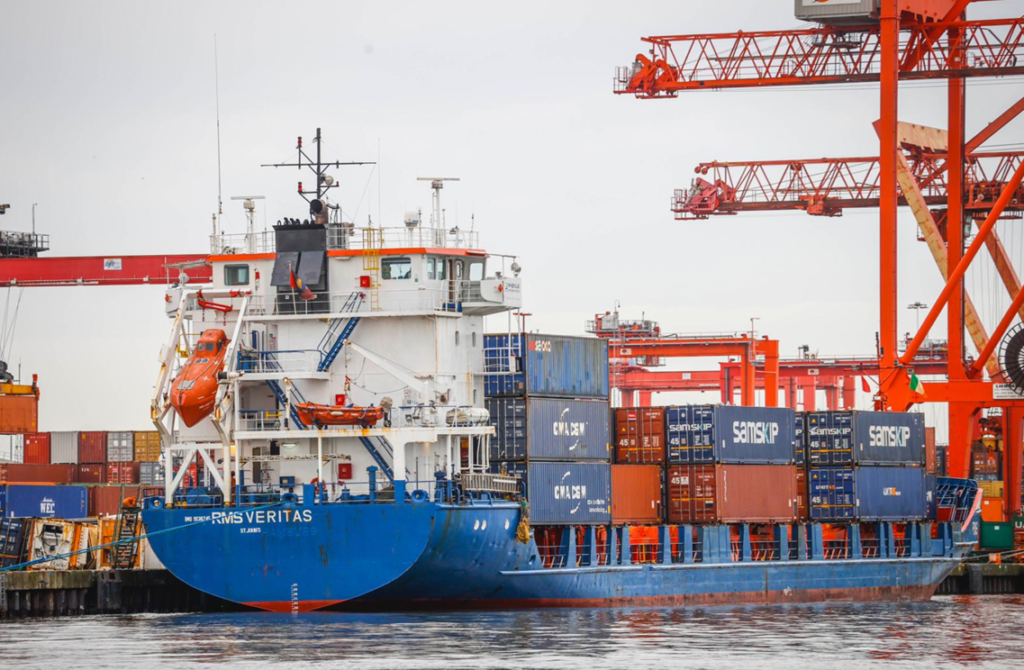
Sunak’s predecessors had been seen in Brussels as too negative and unhelpful in seeking a deal all parties can accept. The winning formula would seem to be the power of Stormont to veto EU laws it doesn’t like. It’s become known as the “Stormont Brake”. However, there are tough conditions to meet before it can be applied and there is a provision for retaliation by the EU, which could suspend market access. The “Brake” would allow the Unionist parties to block any attempts by the EU to change European laws that apply there. It would allow members of Members of the Legislative Assembly (MLAs) at Stormont, from two or more parties, to suspend the rule from becoming law, but only if the MLAs can show definitively that it would have a significant impact on everyday life. In response , the EU would be authorised to suspend Northern Ireland’s access to the single market, subject to international arbitration. Neither side seems to favour such a damaging move. At the time of writing, the DUP members are trying to assess if that gives them the sort of leverage that they think they might need.
| DIPLOMATIC APPROACH
In the negotiations, Sunak secured the right not to apply certain EU laws that Unionists considered damaging to Northern Ireland’s trade, such as the bans on the movement of sausages (which led to something referred to by the media as “Sausage Wars”), seed potatoes and, strangely, trees from the UK mainland to Northern Ireland, while also making the rules on alcohol duty that are applicable throughout the rest of the UK also apply to the Province itself. Importantly, customs provisions have been eased off so that products from mainland Britain not destined to go further than Northern Ireland will not have to undergo checks on the way across the Irish Sea. At least that prevents the idea of customs officials arriving by submarine to inspect passing cargo vessels (that was never proposed, in fact).
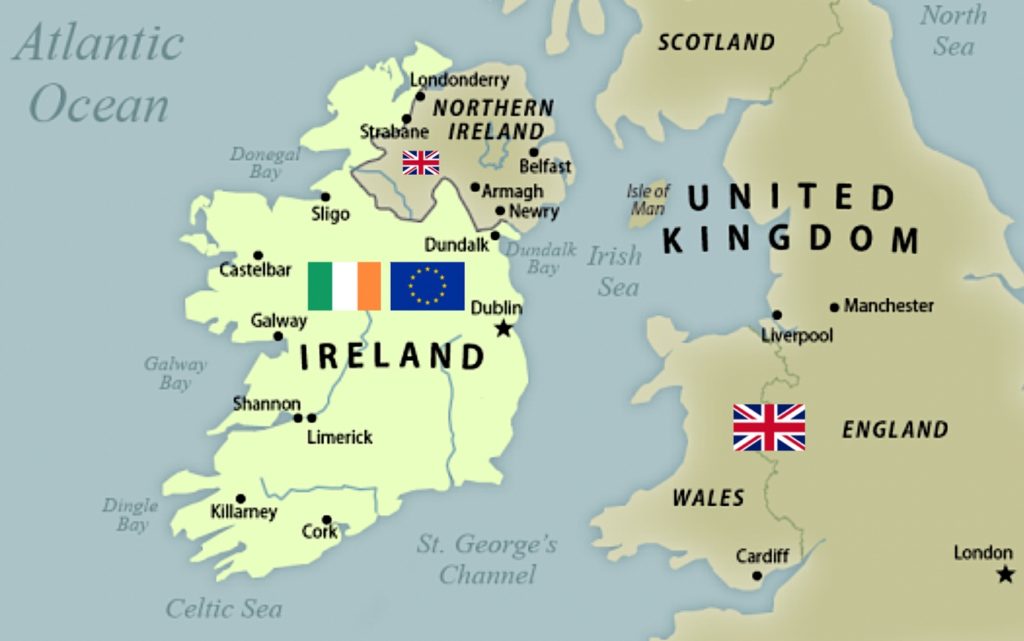
The DUP, however, always suspecting a trick of some sort, still fear it could mean too much red tape, causing British businesses not to sell their products in Northern Ireland. Sunak also scrapped Boris Johnson’s Northern Ireland Protocol, under which inspections and document checks would take place at Northern Ireland’s ports, rather than at the Irish border for goods entering the Province from England, Scotland or Wales, even for goods that would not go any further. Businesses complained that it added costs and caused delays, but scrapping the rule has prompted Johnson to say he may vote against the deal. The EU now says it will not take legal action against the UK for introducing Johnson’s plan. Even so, the deal has its opponents within the DUP who may vote against it.
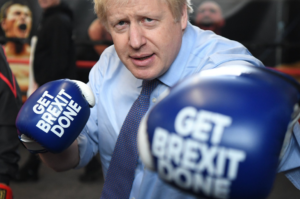
There’s no doubt that progress was made in Sunak’s negotiations with the EU. Sunak took a much more conciliatory approach than Johnson had done, despite his seeming support for Brexit in Parliament. Johnson had favoured (as he has usually done) grandstanding about Brexit and making rude jokes about the EU. They were always counter-productive and made the UK understandingly unpopular in Brussels. Even when we were both journalists working in Brussels I never understood his dislike of the EU. He hasn’t given up, either. He seems determined to torpedo Sunak’s deal, which had ended with Sunak shaking hands with Ursula von der Leyen. In a speech he gave inside the Palace of Westminster, Johnson rejected Sunak’s deal, seemingly turning his back on Sunak’s carefully thought-out diplomacy (Johnson was never a diplomat). One former minister is quoted by the “i” newspaper as saying of Johnson: “The man is a narcissist with no loyalty to the party that made him. He is praying for a trouncing in the local elections so that he can bully his way in again.” Could anyone in the Conservative Party be persuaded to give him that chance? Who can say for sure? It seems that some on the right wing of the Conservative Party favour his uncompromising approach to the Northern Ireland problem, however much trouble it causes for the government and the people living in the Province, as well as for companies trading there. Johnson’s supporters (and yes, he still has some) believe that he’ll be viewed by the party faithful as a martyr to left-wing manoeuvring and thus return to power in triumph.

Within Northern Ireland itself Sunak’s deal also has its opponents, such as former MEP Jim Allister, who wrote on his website that Sunak’s solution: “makes no alteration of substance to the protocol, nor could it, because of the legal framework within which it arises, namely, Art 164 of the Withdrawal Agreement.” He then goes on to explain in greater detail: “Article 164 is emphatic: there can and will be no changes to the ‘essential elements’ of the Protocol. Tinkering only is what is permitted and tinkering only is what we got – still under a foreign customs code, within a foreign single market, subject to all attendant foreign laws and ECJ adjudications.” This fails to mention that many traders in Northern Ireland might actually want access to this “foreign single market” so as to sell their goods and services more widely and with fewer problems. Certainly, Sunak seems to feel that the problems now lie in the past. At a press conference in Windsor, not far from London, Sunak said that the “Windsor Framework,” will deliver “smooth flowing trade” within the UK, “protects Northern Ireland’s place” in the UK and that it “safeguards” the sovereignty of Northern Ireland.
As to how it will work in practice, that’s a little complicated but it can certainly function with a little good will on both sides. During negotiations the EU and UK agreed a Northern Ireland Protocol that there would be no new checks on goods crossing the border between Northern Ireland and the Republic of Ireland (ROI). The protocol is aimed at avoiding a hard border, ensuring the continuing integrity of the EU’s single market for goods and ensuring that access continues unabated for goods being transported into mainland Britain from Northern Ireland, as well as making sure that Northern Ireland goods are automatically included in any free trade agreements with third countries.
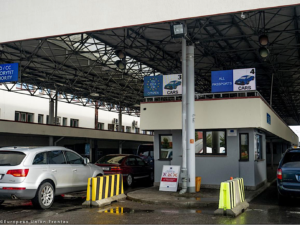
| TRADING PLACES
The long-running negotiations to reach a Northern Ireland protocol on which everyone could agree finally got a deal under which there would be no new checks on goods crossing the border between the Province and the Republic of Ireland. As a result, Northern Ireland has effectively remained inside the EU’s single market for goods, while England, Scotland and Wales have all left. This means that goods can continue to flow between the Province and the Republic just as they did while the UK was a member of the EU, without customs checks, tariffs or new paperwork requirements, although the EU’s rules on customs and regulation of agri-food products continue to apply to goods arriving in Northern Ireland.
This looks (on paper) like the sort of deal that Johnson would love to have achieved but of which it seems he proved incapable. He is capable, however, of causing a lot of problems for Sunak and other Conservatives merely by being there and announcing himself to be a candidate for leadership.
It’s strange because Johnson will soon be called upon to give evidence over the so-called “partygate” scandal, in which Johnson and his various advisors and staff allegedly organised drinking parties inside No. 10 Downing Street or its garden at a time when Johnson’s own government had banned such activities to prevent the spread of COVID 19. It was very much a case on “one law for the rich (the government), another for the poor (the rest of us).” Now Johnson is courting further controversy by nominating his own father, Stanley, a somewhat mediocre fiction author, for a knighthood in his resignation honours list. I met Stanley Johnson before I ever met Boris and I interviewed him for a radio programme about something to do with animal welfare, a subject in which he was interested and involved. He had briefly been an MEP himself and I rather liked him.
Will Boris Johnson succeed in this latest ‘outrage’? It has certainly angered quite a lot of people, but he is totally unmoved by controversy. He is unmoved by the Conservative Party’s need to secure a deal on Northern Ireland, too, and fears have been expressed that the political noise he is making in a bid to get himself noticed could scupper Sunak’s plan and also wreck the Conservatives’ chances of success in the next election. Could Johnson somehow take back the keys to Downing Street? Most senior Conservatives think it’s unlikely, despite Sunak’s support for what is clearly a compromise. As for Boris Johnson? One senior Conservative has been quoted in the “i” newspaper as saying: “Boris had his chance and he blew it,” going on to add: “A period of silence would now be most desirable.” Silence? From Boris Johnson? That would seem to be unlikely.
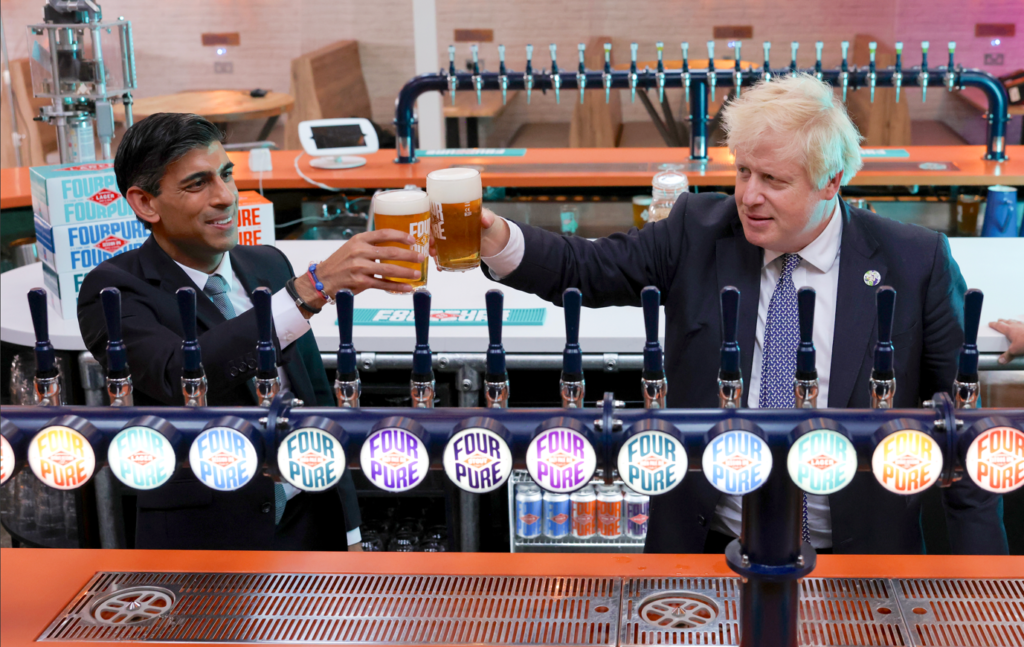
Of course, both Sunak and Johnson were all in favour of leaving the EU, although in Sunak’s case the reason was never very clear. Britain is and always has been a trading nation and the EU is a trading organisation. The current government’s apparent desire to repeal all the laws passed during Britain’s membership of the EU – including those it appeared to support and argue in favour of – makes little sense. In any case, it looks as if Northern Ireland, alone among the parts of the UK, is effectively remaining within the EU, whatever Johnson and like-minded Europe-haters may think. They’ll mainly support repealing those laws that were passed at the EU’s behest, though, including laws on such unrelated issues as human rights, workers’ rights, animal welfare and so on. The reason for wanting to repeal them would seem be simply that they were proposed by the EU, not that they’re bad or damaging to British interests.
Sunak had made it a personal priority to normalise relations between Britain and the EU. Sunak has poured praise on his immediate predecessor, Liz Truss, for supposedly helping to thaw cross-Channel relations, despite her brief tenure of No. 10, Downing Street. The real breakthrough came, though, at last year’s G20 summit, held in Sharm el-Sheikh, Egypt, where Sunak first talked about negotiating with Ursula von der Leyen. There was an immediate retreat from Johnson’s hard-line demands, which eased the path towards more fruitful discussions. According to the “i” newspaper, one of the negotiators said afterwards: “We went in with a mindset that not everyone can get everything they want, but everyone will get everything they need.” This realistic approach was a breath of fresh air after Johnson, with Sunak far more receptive to the demands of Brussels, including rapid access to on-line data so that the negotiators can assess any possible risks. The negotiators on the British side only realised how close the talks had come to a viable deal when von der Leyen announced that she would be travelling over in person. In fact the deal isn’t finally and completely done until the DUP and the Eurosceptic Conservative MPs have agreed it. Only then will Sunak be able to claim victory. Meanwhile, the quibbling over the finer points of detail will continue.
Sunak is not the only one awaiting a confirmed outcome. The EU will be able to finalise a discussion forum at last for EU and UK financial regulators, long delayed by the wrangling over a Brexit deal. It will be similar to the forum that already exists between the EU and the United States. It was due to have been completed by March 2021 but ongoing disagreements delayed it. Now, with agreement apparently reached, the work can go ahead. “We are ready to start work on the finalisation of the Memorandum of Understanding on financial services regulatory cooperation,” a Commission spokesman told the International Business Times. This would, in theory, allow for a relationship not unlike those with other third countries in possession of an important financial services sector. Brexit was very damaging for the UK’s thriving financial sector, forcing some 7,000 of those working in it to relocate to mainland Europe, with Amsterdam overtaking London as the largest share trading centre. The creation of the forum would certainly be welcomed by David Schwimmer, the Chief Executive of the London Stock Exchange Group, who has said that an improvement in relation between the EU and UK would be a “good thing”, which the International Business Times says would “help avoid fragmentation in markets”.
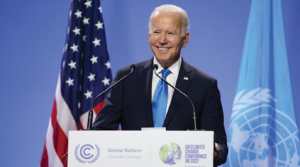
Meanwhile, President Joe Biden’s administration has announced more subsidies and incentives to boost decarbonization, while the EU struggles to keep up. Biden is planning to propose a budget to scrap all oil and gas industry subsidies, according to a document seen by Reuters, although it’s unlikely to meet the approval of Congress. At the same time, the US government wants to direct $6-billion (€5.59-billion) to projects to speed up decarbonisation projects, according to Reuters, in such high-energy-consuming industries as steel, aluminium and cement production, which together account for 25% of US greenhouse gas emissions. It’s all part of Biden’s long-term project to create a more sustainable world; he has been very critical of the large oil companies making record profits at the same time as raising prices. It’s a courageous plan but it could put Europe at a disadvantage as it strives to catch up. Some in Europe fear that Biden’s plans and the grants being offered to universities and developers of alternative energy packages could also lure away some of Europe’s brightest and best. Indeed the risk it poses was discussed at the CERAWEEK energy conference in early March, where delegates debated (among other issues) such things as balancing security, transition and affordability: no easy task.
But decarbonizing industry was one of the key issues under discussion. They discussed a wide range of fascinating projects that hold promise for the future, such as the advent of Wind-Powered Microgrids™ and how they are literally changing the skyline of how major military and corporate consumers are seeing success. Furthermore, Russia’s invasion of Ukraine is inevitably raising oil and gas prices. Another potential energy source that came under discussion at CERAWEEK is Hydrogen, along with electrification and efficiency. Hydrogen is an integral part of a low-carbon future, delegates considered. Government incentives have turbocharged interest in it, particularly for green hydrogen. Critical questions facing hydrogen development include how government policies can jumpstart the industry, and where can low-carbon hydrogen be produced.
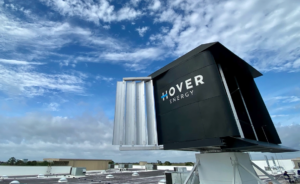
Some of the scientists trying to find signs of alternative forms of life on other planets, members of the Laboratory for Agnostic Biosignatures, LAB, had considered the presence of oxygen as a sure-fire sign, but they now think there is no such thing as a sure-fire sign. Others are working on ways to manufacture concrete and cement with fewer emissions. One method is to use basalt instead of limestone, or else carbon-negative limestone, produced with waste CO₂.
These are all technologies for the future and may not be relevant for Northern Ireland just yet, but there is certainly room for the Province to get more deeply involved. Tech companies in Northern Ireland raised £45.6 million in investment in 2020, a record figure for the sector despite the pandemic, which beats the previous record of £30.4 million set in 2018. According to The Irish News, Northern Ireland has 2,195 digital tech firms, employing 21,140 people and with a combined £3bn turnover. That’s a significant contribution to the local economy. In addition, Digital DNA recently published its listing of the Top 100 tech companies in the Province, showcasing leading firms across software development, fintech, IT managed services, health tech and other areas. Maybe the time is drawing towards an end when children were warned “don’t wander away”, not out of concern about paedophiles or getting into trouble but in case the children became involved with children following a different religion and things turned violent. One problem is that the Falls Road (a stronghold for Catholics) and the Shankhill Road (similarly a stronghold for Protestants) run roughly parallel towards the centre of Belfast, connected by various cross streets. The area had seen many barricades and quite a few riots. The two sides were also split by internal divisions; the IRA – the Irish Republican Army – became divided and a new, more violent branch began its operations as the Provisional IRA.
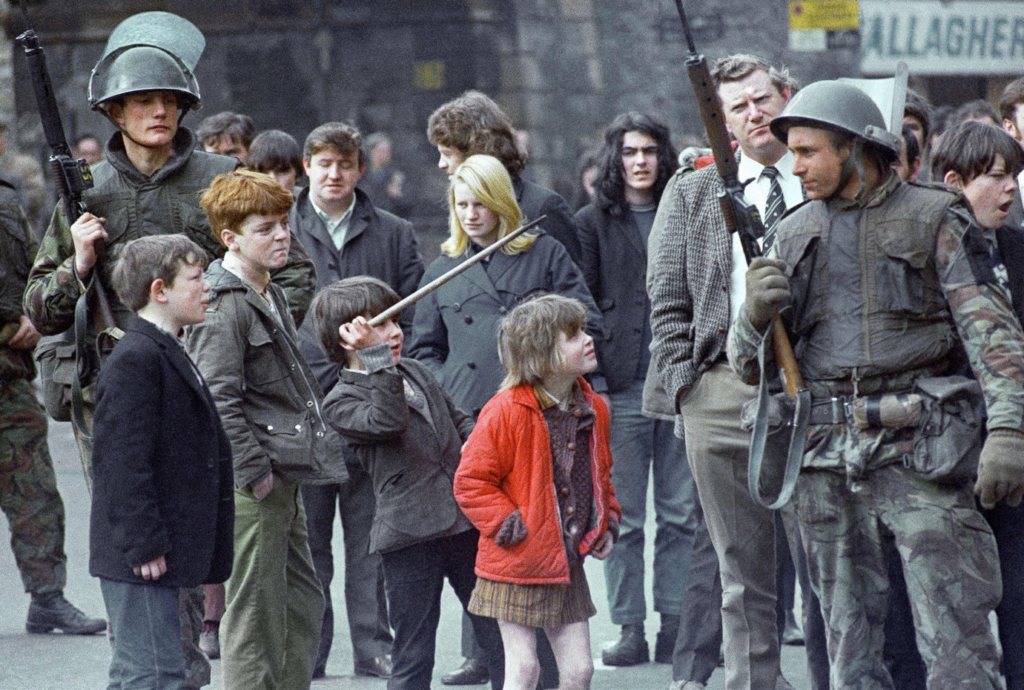
The old hatreds have not gone away, although they seem to have subsided a little. Successful trading with other parts of the world should make the Province wealthier and perhaps (only perhaps) less inclined to devour its own children, figuratively speaking. I cannot foresee a day when Catholics and Protestants bury their differences completely, instead of just burying their slaughtered kinfolk. Maybe that lady I mentioned having interviewed will one day be able to take down that bomb-proof netting that marred her garden. Rishi Sunak’s compromise deal has an awful lot to live up to, but it’s a start. Perhaps Ulster will one day be seen as an exporter of high technology instead of bullets and bombs. If Ian Paisley and Martin McGuinness could find it in their hearts to become friends (or at least not enemies any more), perhaps there’s hope for all of us.

